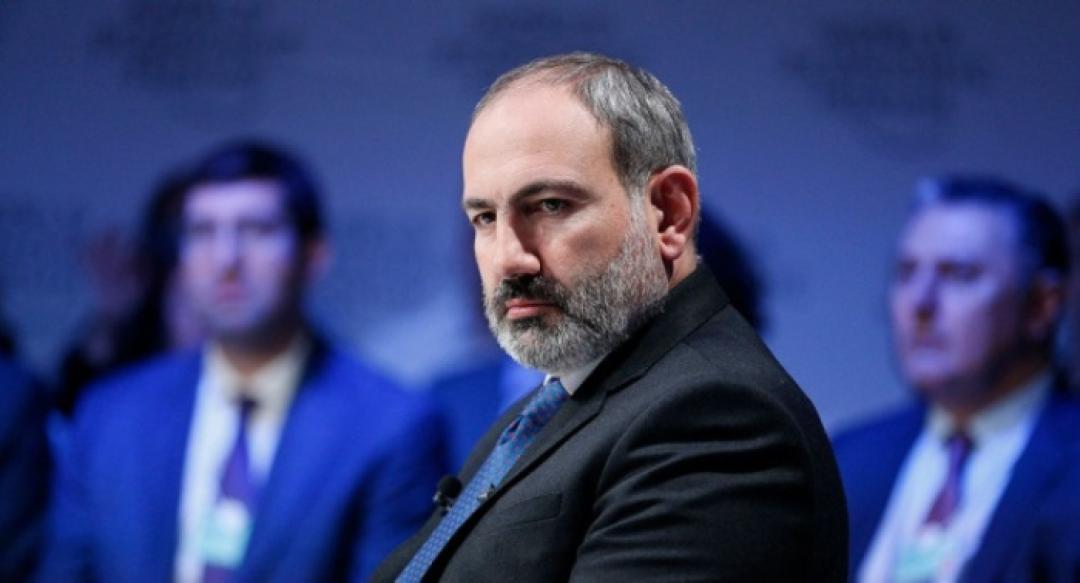
Nikol Pashinyan Addresses Lachin Corridor and CSTO's Role in Region

On February 8, during a government hour in the Armenian parliament, commenting on the results of a meeting of the Eurasian Intergovernmental Council held last week in Alma-Ata, Armenian Prime Minister Nikol Pashinyan said that unblocking economic ties and transport communications in the South Caucasus will significantly increase Armenia's trade with other member countries of the Eurasian Economic Union.
According to him, there is only one land route between Armenia and other countries in the integration association, and it passes through Georgia—the Upper Lars International Automobile Checkpoint. "Its capabilities are limited, and accordingly, the opening of road and rail routes through the territory of Azerbaijan would ensure a significant increase in trade volumes between Armenia and the EAEU," he added. "This explains Yerevan's interest in opening transport communications in the region and what is enshrined in the tripartite statement of the leaders of Russia, Armenia, and Azerbaijan dated November 9, 2020, the Armenian side is ready to implement," he stressed.
Pashinyan also dismissed the notion that Armenia is obstructing road construction that some countries hold. On the contrary, as the prime minister pointed out, Yerevan is most interested in unblocking communications since Armenia has been under blockade for 30 years. "Azerbaijan and Turkey have alternative routes, and given Armenia's interest in communications, its counterparties are trying to increase the price for opening roads for the republic," the head of government attracted attention. In this context, Pashinyan recalled that in the 2020 trilateral statement, there is no concept of a corridor about the route to Nakhchivan through the territory of Armenia, and there is also no concept of restriction of sovereignty. "Azerbaijani President Ilham Aliyev recently admitted that this and other trilateral documents do not contain the word 'corridor' and that it was he himself who later coined the term Zangazur corridor," Pashinyan stated.
Moreover, he said that there is no hidden geopolitical meaning in the fact that the Armenian authorities prefer the European Union observers to the CSTO in the country.
According to Pashinyan, the main reason is that, unlike the Collective Security Treaty Organization (CSTO), the EU has clearly defined the territory of the Republic of Armenia. "We asked the CSTO to clarify the fundamental issue for us: the area of responsibility in Armenia. In other words, tell us what the borders of the Republic of Armenia are. We could not get the exact answer to this question. On the other hand, it was possible to send an EU mission because the EU delineated the territory of Armenia at the quadrilateral meeting in Prague. This happened with the participation and consent of Armenia and Azerbaijan. That is, they said that this was how they saw the map of the Republic of Armenia, and it [the mission] was approved with that in mind," Pashinyan said.
Pashinyan touched on another subtlety in placing EU observers in Armenia. According to him, before the decision to send EU observers to Armenia, Azerbaijan justified its actions against Armenia on the western borders by saying that Armenia was concentrating new Russian forces on the border because it was preparing for aggression against Azerbaijan together with Russia. According to Pashinyan, Baku was trying to protect itself from aggressive actions.
"Our Western partners also began to look at us suspiciously, saying that you are preparing for really aggressive actions because you are gathering Russian and Armenian soldiers at the border, you are preparing to attack Azerbaijan, poor Azerbaijanis are trying to hold the heights to balance the situation. We also said that it's fine, let's take a look and see whether all this corresponds to reality or not," Pashinyan concluded.
See Also


Simonyan: “Armenia Should Trade with Turkey and Azerbaijan Instead of Closing Borders”

Mirzoyan Meets US Deputy Assistant Secretary Joshua Huck

Azerbaijani President Holds Talks with UAE and German Business Delegations on Economic Cooperation

Grigoryan Confirms Armenia’s Readiness to Dissolve OSCE Minsk Group Upon Peace Treaty Signing

